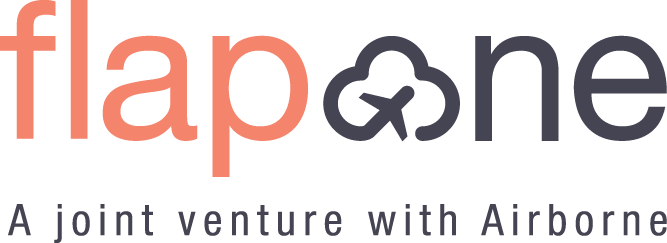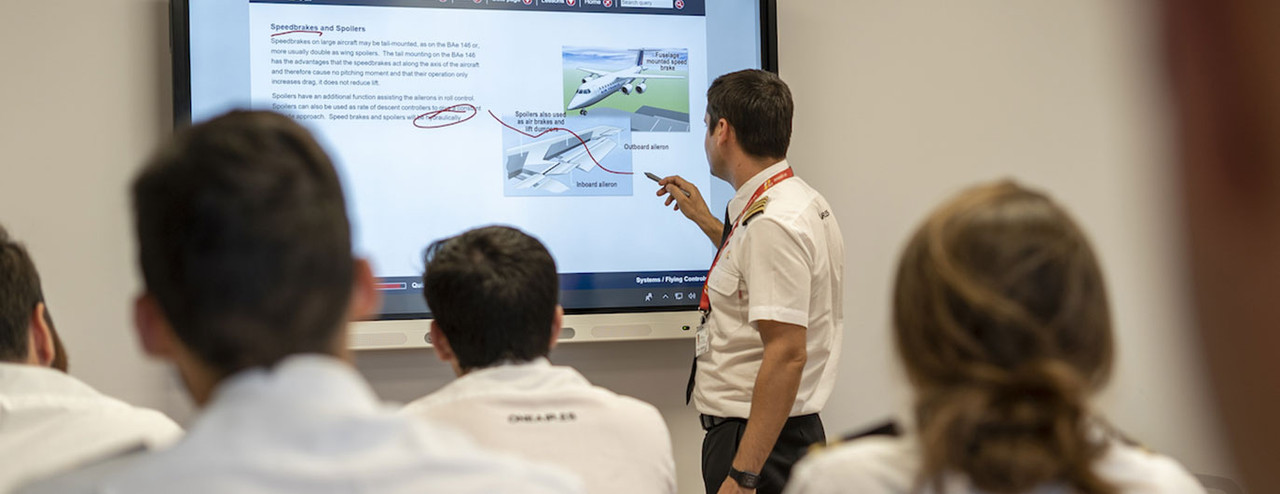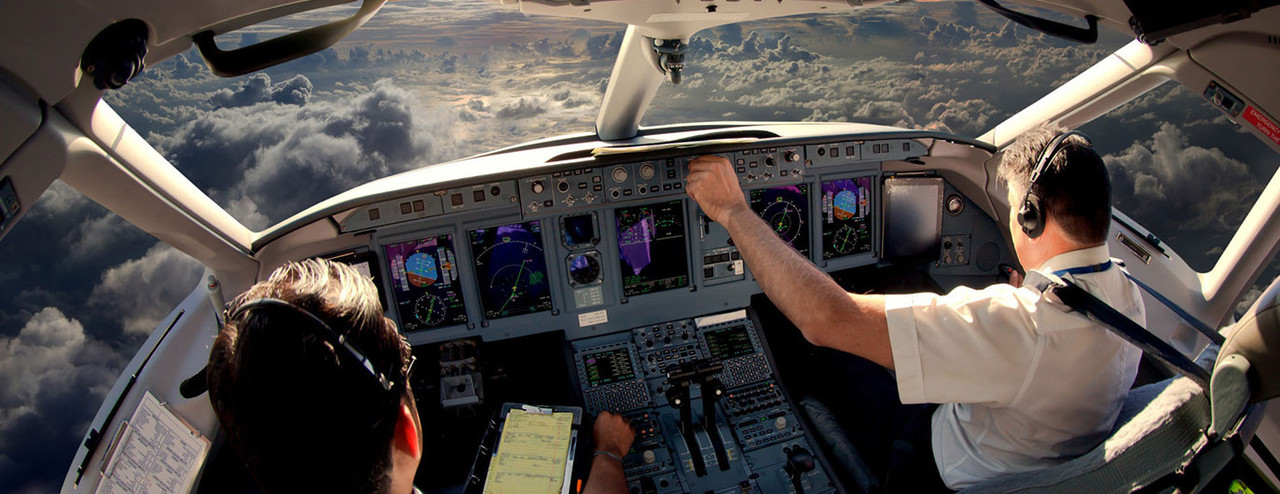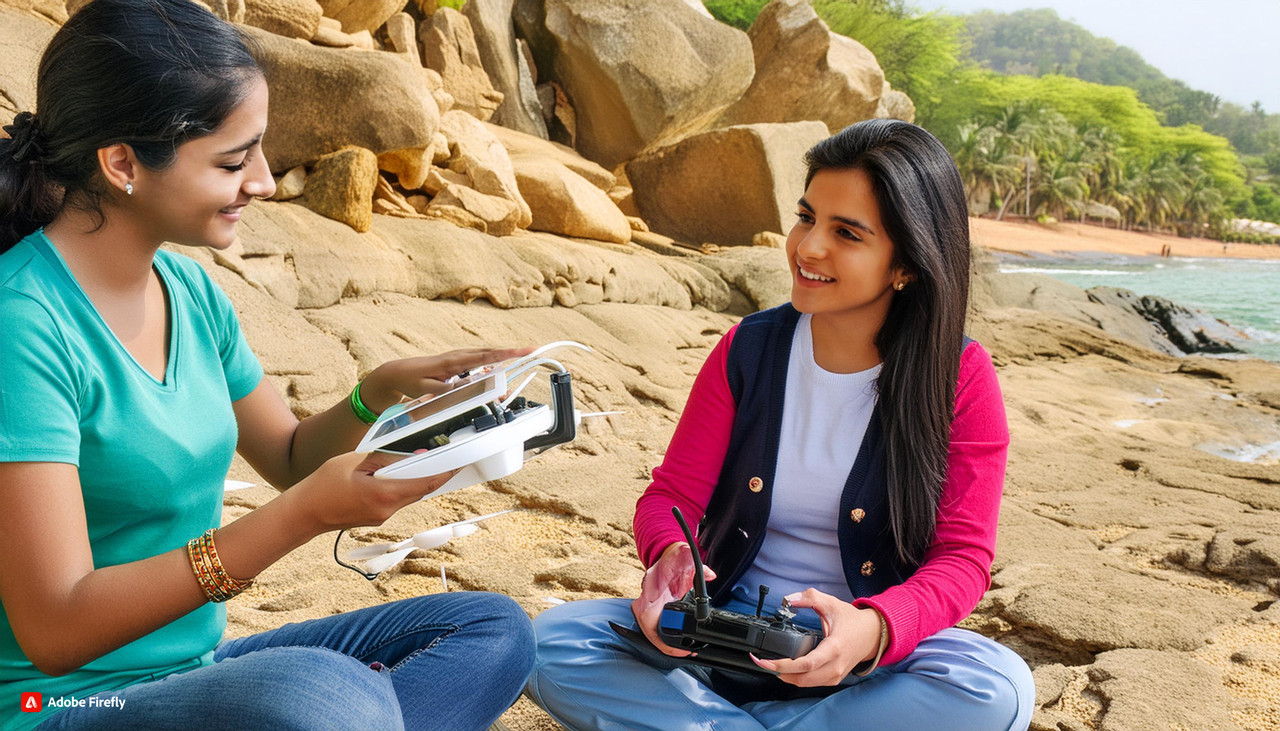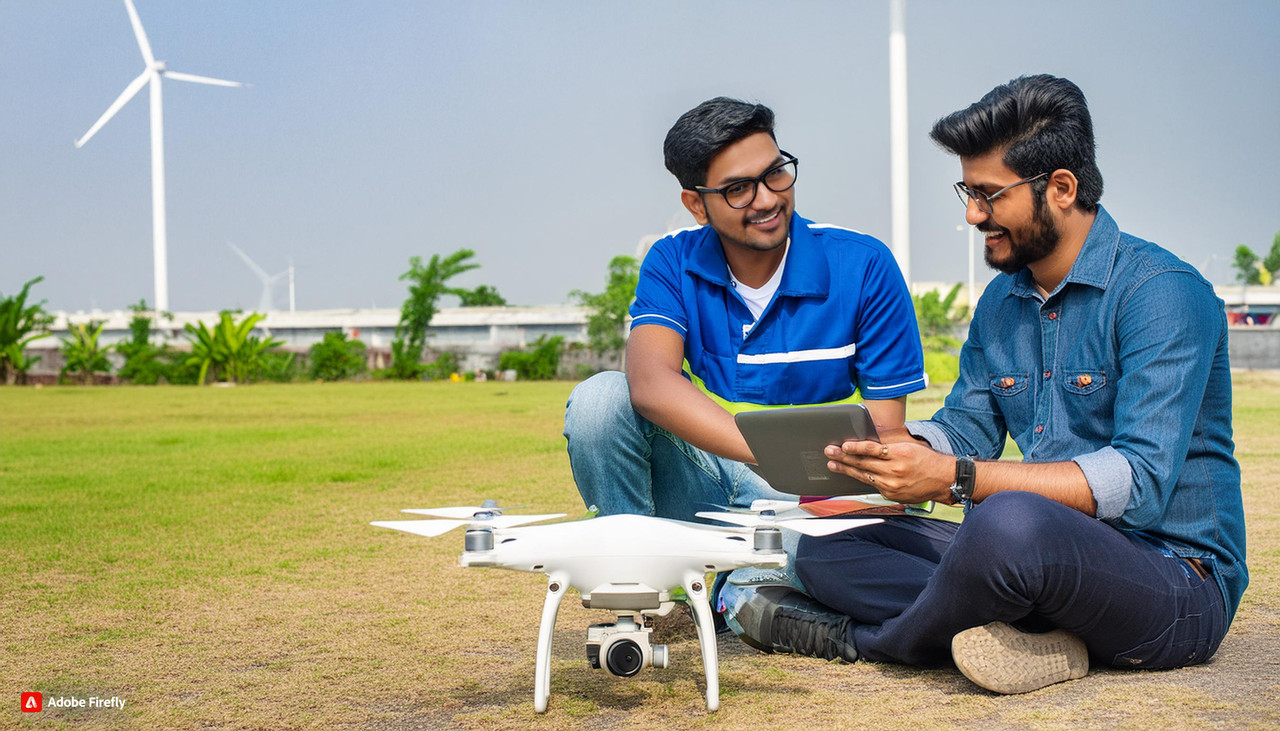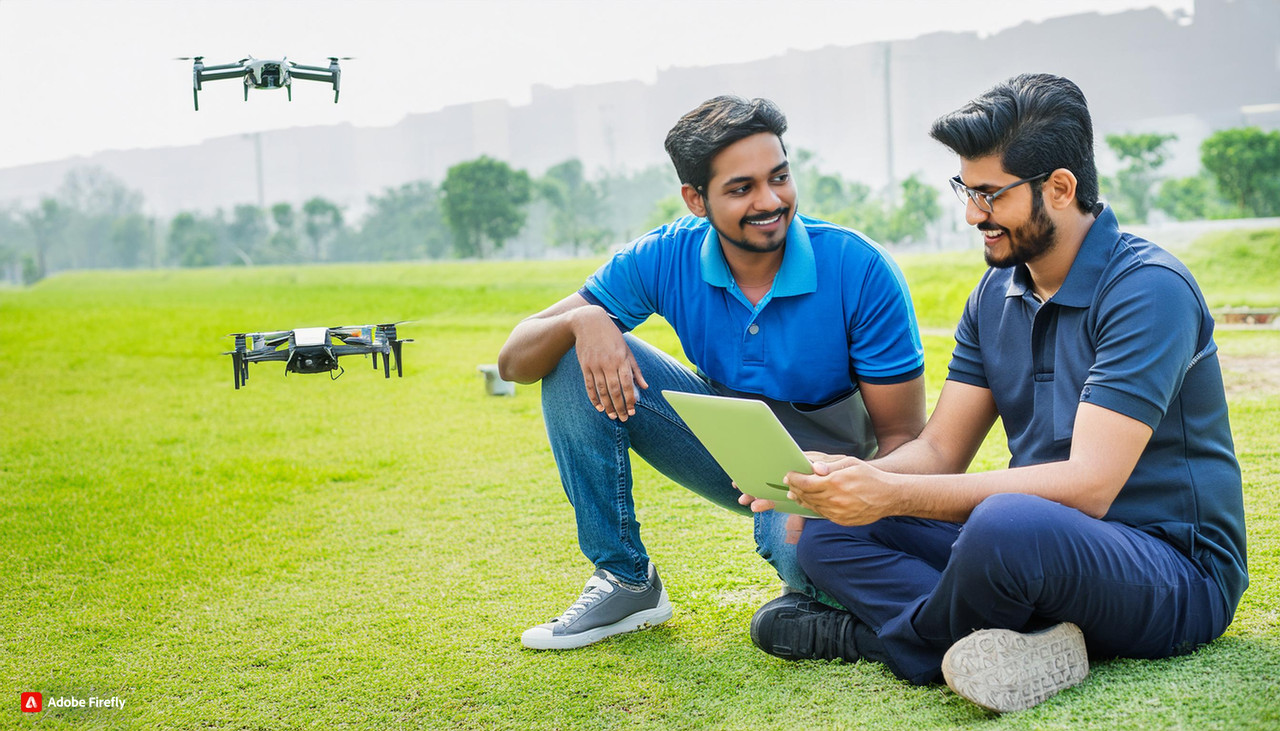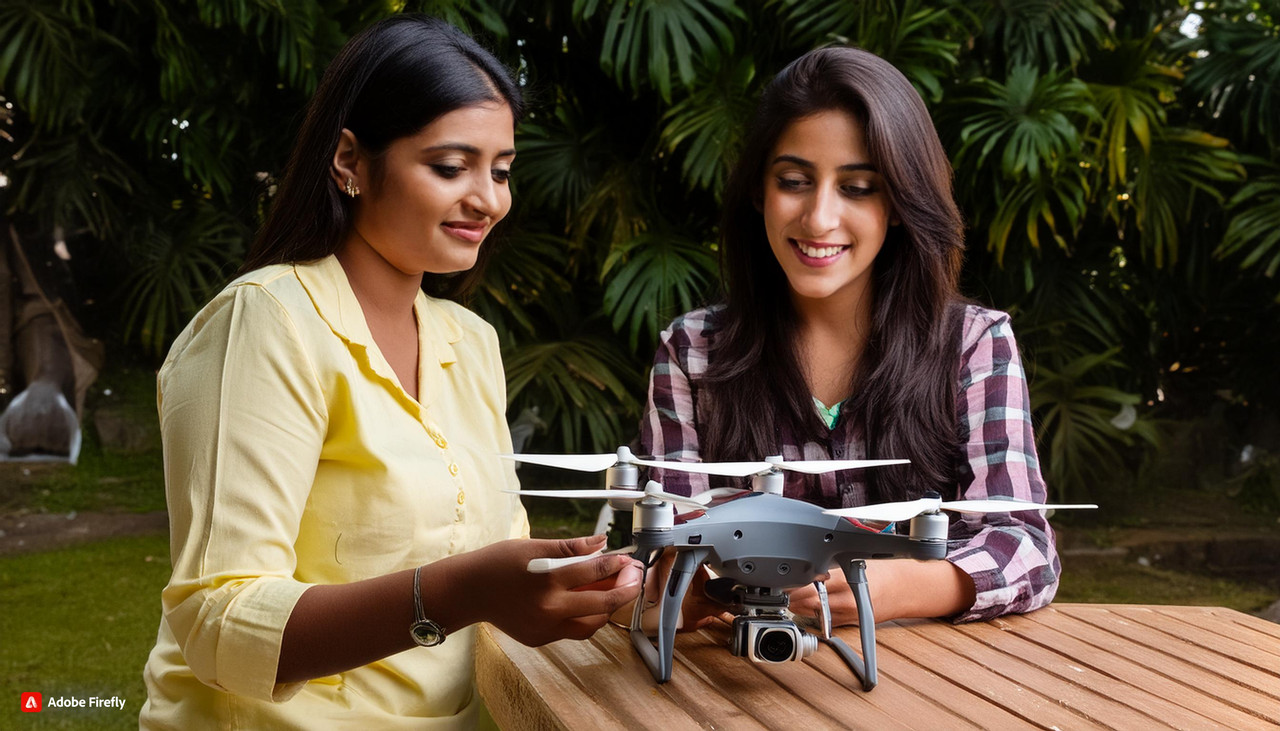Small RPC - Drone Pilot Training
Q: What is a small RPC?
Ans: A remote pilot license is the equivalent of a vehicle driver's license. In India, a license is essential for business drone use. Flying drones for commercial purposes without a DGCA-approved Remote Pilot License is strictly prohibited. A small RPC enables you to use small drones for commercial purposes.
Q: Is drone pilot a good career option in India?
Ans: The Government of India supports the drone sector. The need for drone pilots will rise dramatically. It is already growing and will only go from strength to strength soon, making a career as a drone pilot a good choice.
Q: Why should I choose Flapone Aviation for Drone Training?
Ans: We offer unrivaled training and an excellent environment for the entire course duration. Moreover, we provide placement support. We assist with producing and delivering your RPC via the Digital Sky gateway.
Q: Which industries require small RPC drone pilots?
Ans: The industries that require small RPC Drone pilots are photography and videography, food and drug delivery, agricultural monitoring, etc.
Q: Why is a Small RPC course only for five days?
Ans: Yes, it is a short-duration course spanning just five days because it is a skill development course. Skill development courses are those that, once completed, provide you with skills that are essential for making a living. The shorter the course, the quicker you can churn money by showing your skills as a drone pilot.
Q: What is the minimum qualification required for a small RPC?
Ans: The minimum qualification for enrolling in a small RPC is that one should have passed the 10th standard.
Q: What is the minimum and maximum age for enrolling in an RPC?
Ans: The minimum and maximum ages for enrolling in a small RPC are 18 and 65 years, respectively.
Q: How long will I get the practical drone training in a small RPC?
Ans: The total time allotted for practical flying training under the miniature RPC course is 4 hours and 30 minutes. This includes flying drones during the day and night.
Q: Will I get a job after doing a Small RPC course?
Ans: Yes, you can apply it to the government and private sector since it is a skill-based training course. We also provide 100% placement assistance to all who complete the course.
Q: What will be my salary as a drone pilot with a small RPC?
Ans: The average salary for a pilot with a small RPC approximately ranges from Rs.18,000 to Rs.35,000, and based on your experience and skill level, the sky is the limit for you.
Q: Are your training programs certified by the Directorate General of Civil Aviation (DGCA)?
Ans: Yes, we are DGCA approved RPTO (Remote Pilot Training Organisation) and comply with all regulatory requirements for drone pilot training in India.
Medium RPC - Drone Pilot Training
Q: What is a Medium RPC drone training course?
Ans: The Medium RPC drone training course will help the students learn the basics of Drone Technology and concepts related to Medium Drones. They can also learn about troubleshooting, flight control, drone maintenance, and regulations.
Q: What are your fees for a Medium RPC course?
Ans: The total fee of the Medium RPC is Rs 40,000 + 18% GST, which amounts to INR 47,200. This includes the charges for training, food, and accommodation for the duration of the course.
Q: In which industries can I get the job after completing a Medium RPC course?
Ans: After completing the Medium RPC course, students can get jobs in skills in agriculture, logistics, and other industries.
Q: What is the mode of Medium RPC training?
Ans: RPC training is available online and offline. The theory classes can be taken online, and the practical training should be taken offline by visiting our flying base in Sonipat.
Q: Can partial payment be made for the Medium RPC course?
Ans: Yes, if you are interested in doing the Medium RPC, you can pay the token amount on registration, and the rest amount can be paid by you when you visit the flying base for practical training sessions.
Q: Will night drone flight training be provided as a part of the Medium RPC course?
Ans: Yes, night drone flight training is part of the practical training module of the Medium RPC program.
Q: Where are your training centres for the Medium RPC drone programs located?
Ans: Currently, the medium RPC course is available in the training centres of Dwarka (Delhi) for theory classes, Sonipat (Haryana), and Sohna (Gurugram) for practical training.
Q: Do You Guarantee a job after the Medim RPC course?
Ans: We guarantee 100% placement assistance to all students after completing the Medium RPC course. In this regard, we extend the students' resumes to companies that need drone pilots. If you need a placement guarantee, you can enroll in the Skyeair Mobility Cadet Pilot Program powered by Flapone Aviation.
Q: What will the duration of the Medium RPC course be for small RPC holders?
Ans: The normal duration for a Medium RPC is five days, but for people who have already completed a small RPC course, the training only lasts two days. Three days are credited based on their previous course experience.
Q: What are the must-have documents for enrolling in the Medium RPC?
Ans: If a person has already completed a small RPC certification. In that case, a license is required, along with any ID and address proof, such as Aadhaar and a Valid Passport, Driving License, Voter ID, or Ration Card.
Q: Are your training programs certified by the Directorate General of Civil Aviation (DGCA)?
Ans: Yes, we are DGCA approved RPTO (Remote Pilot Training Organisation) and comply with all regulatory requirements for drone pilot training in India.
Train The Trainer (TTT) - Drone Instructor Pilot Training
Q: What is Train the Trainer Drone Instructor Pilot Training?
Ans: The Train, the Trainer Course is perfect for those who want to teach the next generation of Drone Pilots. Drone Pilots will learn the fundamentals of teaching future Drone Pilots through theory, simulation, and flying, accompanied by regulatory and legal agenda, drone assembly, teaching methodologies and maintenance, RPTO Training Workflow, Instructional Methods, safety protocols, and industry insights.
Q: What is the minimum eligibility for Drone Instructor Pilot Training?
Ans: The minimum qualification for Train the Trainer Drone instructor pilot course is graduation or equivalent (12+3), and a small RPC is mandatory.
Q: What is the validity of the Drone Instructor Pilot Training certification?
Ans: The Train the Trainer Drone Instructor Pilot Training certification is valid for 10 years. After that, the license needs to be renewed.
Q: Does the DGCA approve the Drone Instructor Pilot Training certification?
Ans: Yes, the Train the DGCA approves the Drone Instructor Pilot Training certification, and after doing this certification, you become eligible to drone drone pilots.
Q: Can you tell me about the total duration of the Drone Instructor Pilot Training certification course?
Ans: The Train the Trainer Drone Instructor Pilot Training certification course lasts 4 days. This course will include both theory and practical training.
Q: What can I do after completing the Drone Instructor Pilot Training certification course?
Ans: You will train the people who want to become drone pilots and, in return, earn a good living for yourself, too. You can do this by working with a renowned drone pilot training institute, either government or private.
Q: What is the difference between a drone pilot and a drone pilot instructor?
Ans: The basic difference between a drone pilot and a drone pilot instructor is that a drone pilot operates a drone after getting trained in the same, and the drone pilot instructor instructs the people, who want to become drone pilots in the future.
Q: Can I train both small and medium drone pilots by taking the TTT course?
Ans: The drone pilot instructor course is a step-by-step process; initially, you can train small drone pilots, and then you have to send a request to the DGCA to upgrade the instructor license after you complete the subsequent training for becoming a medium drone instructor.
Q: How much will I earn after doing the Drone Instructor Pilot Training course?
Ans: The average salary of a drone pilot instructor is around 40-50 thousand per month, but it can go even higher based on the instructor's experience.
Q: Are there any other technical mandates for obtaining the Drone Instructor Pilot Training license?
Ans: As per the regulations of the DGCA, obtaining a drone instructor license requires a minimum of 20 hours of drone flying experience before appearing for the viva voce. A total of 7 hours of flight are included in the small RPC (4.5 hours) and Train The Trainer Drone Instructor Pilot Training. Program (2.5 hours), and the remaining 13 hours must be done from any recognized institution.
Small & Medium RPC - Drone Pilot Training
Q: What is the Small & Medium RPC Drone Pilot Training course?
Ans: This comprehensive course provides the training and knowledge to operate small and medium drones used in many industries, such as delivery and agriculture.
Q: What is the timing of the comprehensive Small & Medium RPC Drone Pilot Training course?
Ans: The theory classes for the comprehensive Small & Medium RPC Drone Pilot Training course are from 9 AM to 6:30 PM, and the timings of the practical training will depend on availability and requirements.
Q: Can I get the total duration of the Small & Medium RPC Drone Pilot Training course?
Ans: Talking of the duration of the Small & Medium RPC Drone Pilot Training course, this spans only 7 days.
Q: What is the advantage of a comprehensive Small & Medium RPC Drone Pilot Training course?
Ans: The main advantage of doing a comprehensive Small & Medium RPC Drone Pilot Training course is that you will get all the training of operating small and medium drones in one go. So, there is no need to wait after doing the small RPC course to do the Medium RPC.
Q: Are there any minimum age requirements for the Small & Medium RPC Drone Pilot Training course?
Ans: You must be at least 18 and a maximum of 65 years old to enroll in the Small & Medium RPC Drone Pilot Training course.
Q: Can I do the Small & Medium RPC Drone Pilot Training course after 12th Standard?
Ans: Yes, you can do the Small & Medium RPC Drone Pilot Training course after 12th, as the minimum educational qualification for doing this course is that one should have passed class 10th or equivalent from a recognized board or University.
Q: How much would I have to spend on the Small & Medium RPC Drone Pilot Training course?
Ans: The total amount that needs to be spent to do this comprehensive Small & Medium RPC Drone Pilot Training course is INR 60,000+ 18% GST. So, the total course fees amount to INR 70,800.
Q: Is food and accommodation included in the Small & Medium RPC Drone Pilot Training course fees?
Ans: Yes, the course fees include food and accommodation for the entire duration of the course. This means that there is no need to pay anything extra for food and lodging.
Q: Will I get one comprehensive license or a separate license for small and medium RPCs?
Ans: After completing the Small & Medium RPC Drone Pilot Training course, all students will get separate licenses, mentioning that they have completed both Small RPC and Medium RPC under this comprehensive course.
Q: Isn’t the duration shorter for a comprehensive course?
Ans: Absolutely not. Seven days is enough time for you to attain competency in the operations of both small and medium drones. This is because it is not a degree course but a skill-based certification intended to develop the learners' skills and help them make their fortunes.
Small RPC & TTT - Drone Instructor Pilot Training
Q: What is a Small RPC & Drone Instructor Pilot Training
Ans: It is a comprehensive training course on how to become a small remote pilot, followed by a course on becoming a certified remote pilot instructor.
Q: Can I do this course online or offline?
Ans: The course can be done in a hybrid mode: theory classes can be taken online or offline, and practical training requires coming to our flying base.drone training
Q: What is the total duration of this comprehensive Small RPC & Drone Instructor Pilot Training course?
Ans: The total duration of this comprehensive course of Small RPC & Drone Instructor Pilot Training is just 11 days.
Q: Are there any must-have documents for enrolling in the Small RPC & Drone Instructor Pilot Training course?
Ans: To enroll in this comprehensive course, a person must have an Aadhaar and passport, driving License, voter ID, or Ration Card.
Q: Can anyone get admission in this comprehensive Small RPC & Drone Instructor Pilot Training course?
Ans: To get admission in this comprehensive course, one should be at least 18 years old but not more than 65. On the educational front, a person should at least have a graduation degree from a recognized institute.
Q: For how long will the certifications will be valid?
Ans: The licenses for both courses will be valid for 10 years. After that, it must be renewed by the DGCA, the regulatory body for drone and aviation operations in India.
Q: What can I do after doing this comprehensive course of Small RPC & Drone Instructor Pilot Training course?
Ans: This comprehensive course enables you to become acquainted with drone operations yourself and also learn the requirements for becoming a drone instructor. So, it is up to you where you want to make your fortune, be it as a drone pilot in various industries, such as Agriculture, logistics, photography, etc., or as a drone pilot instructor in a government or private organization.
Q: Is it a good idea to become a drone pilot or a drone instructor in India?
Ans: Yes, it is, in fact, a fabulous idea to consider a career as a drone pilot or drone pilot instructor in India. The reason behind this is the constant support of the Indian government toward the drone sector and the increasing use of drones in various industries.
Q: Do I have to make food and accommodation arrangements on my own, during the duration of the course?
Ans: No, you need not worry about accommodation and food during the entire length of the course. We will provide food and accommodation at no extra cost.
Q: Is night drone flight training included in the course?
Ans: Yes, this comprehensive course covers all the theory and practical aspects of drone piloting and drone instructor training. Since drone flight at night is a critical part of the practical training module, it is included in the course.
Small RPC, TTT & Medium RPC - Medium Drone Instructor Pilot Training
Q: What is Small RPC, TTT & Medium RPC - Medium Drone Instructor Pilot Training?
Ans: A training course to get Small RPC, a training course to qualify for DGCA viva to become a Remote Pilot Instructor and Medium RPC & to be entitled to DGCA viva to become a Medium Category drone Instructor.
Q: What is the total cost of the Small RPC, TTT & Medium RPC - Medium Drone Instructor Pilot Training course?
Ans: For this highly comprehensive and lucrative drone training and instructing course, you must spend 1 lac+ 18% GST. The total cost of the course is 118,000 INR.
Q: How long will the Small RPC, TTT, and Medium RPC—Medium Drone Instructor Pilot Training course last?
Ans: You don’t have to wait long to make a living out of the course. The course will only last for 11 days, and then you will get the licenses of the same.
Q: How extensive will the practical training of the Small RPC, TTT, and Medium RPC—Medium Drone Instructor Pilot Training course be?
Ans: There will be ground training and simulator training sessions apart from theory classes to ensure you can put your best foot forward when you do it all for a living. The total time of the practical training will be 5 hours, of which ground training will be 2 hours and simulator training will be 3 hours.
Q: What education should I possess to enroll in the Small RPC, TTT, and Medium RPC—Medium Drone Instructor Pilot Training course?
Ans: The minimum education qualification required to enroll in this comprehensive course is graduation.
Q: I am 16 years old, can I do the Small RPC, TTT, and Medium RPC—Medium Drone Instructor Pilot Training course?
Ans: Unfortunately, no. You will have to wait until you turn 18, as the minimum age for admission to this course is 18, and the maximum is 65.
Q: What is the potential for people after doing the Small RPC, TTT, and Medium RPC—Medium Drone Instructor Pilot Training course?
Ans: Drones are becoming the buzz worldwide, and India is not holding back. Once you get the drone pilot and instructor license, many opportunities are open to you. You can work as a drone pilot in the agriculture, photography and logistics industries. If you are an instructor, the ever-increasing training institutes can be a good prospect if you have no thoughts of doing your own business.
Q: Can I pay the fees for the Small RPC, TTT, and Medium RPC—Medium Drone Instructor Pilot Training course in instalments?
Ans: Yes, you can pay the fees for the Small RPC, TTT, and Medium RPC—Medium Drone Instructor Pilot Training course with easy instalments.
Q: Do you also provide jobs after the Small RPC, TTT, and Medium RPC—Medium Drone Instructor Pilot Training course?
Ans: We provide 100% job assistance to all students after they complete the Small RPC, TTT, and Medium RPC—Medium Drone Instructor Pilot Training courses.
Q: Why should I choose Flapone Aviation for the Small RPC, TTT, and Medium RPC—Medium Drone Instructor Pilot Training course?
Ans: Flapone Aviation is the best in the business for training drone pilots and instructors. Its seasoned professionals provide both theory and practical training.
Weekend Batch - Drone Pilot Training
Q: What is the weekend batch of drone training courses?
Ans: All drone training courses are available in weekend batches in addition to normal ones. This is especially favourable for working professionals who cannot make it on weekdays.
Q: Is the weekend batch's age eligibility different from the normal courses?
Ans: No, the age eligibility for the weened batch and the normal course is the same, i.e. one should be 18-65 years.
Q: I want to join the drone training course as a fresher; what is the minimum educational qualification?
Ans: If you want to join the drone training course as a fresher, then you should have passed class 10th or equivalent from a recognized board or University to get enrolled in the weekend batch.
Q: What are the fees for the weekend batch drone training courses?
Ans: Since many drone training courses are part of this weekend batch, if you want to know about the detailed fee structure, you can call us at 08048-734-634 or visit the page of the course of your interest.
Q: Can I know about the mode of the drone training courses in the weekend batch?
Ans: The mode of drone training courses is hybrid. The theory classes can be taken online or offline, but for practical drone flight training, there is a need to come down to our flying base.
Q: Will the training also take place during night time?
Ans: Most of the training will occur during the day only, but since night flight training is also an essential part of drone pilot training, only this will occur at night.
Q: I am already working; will the drone training weekend batch be any good for me?
Ans: Yes, you can enroll in the weekend drone training course even if you are working, as it expands your horizon. Drones are hugely popular in agriculture, logistics, entertainment and even photography. This will only increase with time, and so will the prospects for you to earn more via drones in service or even starting your own business.
Q: Will the certification I receive in the weekend batch be approved by the DGCA?
Ans: Yes, all the courses of drone pilot training, whether in the normal batches or weekend batches, are approved by the DGCA.
Q: I am a photographer. Will I be able to use a drone for photography after getting an RPC?
Ans: Yes, you can; an RPC enables people to use drones for commercial purposes. You can make use of drones for capturing some stunning ariel shots.
Q: What is the validity of the RPC that I will get after doing a drone pilot training course?
Ans: The certificate you will receive after completing the drone training course of your choice is valid for 10 years.
Commercial Pilot Licence - Ground Classes (CPL)
Q: What is a Commercial Pilot Licence?
Ans: Commercial Pilot License is a course for pilot license certification, and there are three stages to flying an Aircraft in India. In short, there is a need for this license if you want to fly aircraft to make money.
Q: What will be the advantage of a Commercial Pilot License for me?
Ans: A commercial pilot licence allows a person to apply for jobs in scheduled & non-scheduled airlines & further aviation jobs.
Q: What is the minimum age to obtain a CPL?
Ans: To start the training for obtaining a CPL, one should be at least 18 years old. On the other hand, obtaining a Student pilot licence (SPL) can be done at just 16 years of age.
Q: Can you tell me about the educational qualifications required to obtain a CPL?
Ans: Regarding educational qualifications, one should have a minimum qualification of 12th passed and have phsycis and mathematics as subjects for obtaining a CPL.
Q: What are the topics covered in the CPL training?
Ans: The topics covered in the CPL training are Air Navigation , Air Regulation , Aviation Meteorology , Technical General and Radio Telephony .
Q: Where is the CPL ground training held?
Ans: Currently, CPL ground training is available offline in Dwarka, Delhi and you can do it through online mode from anywhere, you want.
Q: Why should I choose Flapone Aviation for CPL Ground Training?
Ans: Flapone Aviation has the best team of CPL instructors, and it helps students at every step of obtaining a CPL.
Q: Can the course fees for CPL-Ground classes be given in Installments?
Ans: Yes, the fees can be submitted as easy instalments once you decide to enroll in the CPL ground classes.
Q: Is there any minimum flight training requirement for obtaining a CPL?
Ans: Yes, to become eligible for attaining a CPL, one should have completed a minimum of 200 hours of flying.
Q: How many exams will I have to clear for obtaining a CPL in India?
Ans: To obtain a commercial pilot licence in India, you need to pass a total of 5 exams.
Airline Transport Pilot Licence (ATPL)
Q: What is Airline Transport Pilot Licence (ATPL)
Ans: The Airline Transport Pilot Licence (ATPL) is the highest level of aircraft pilot license, and it is mandatory to fly as a Pilot in Command of a big aircraft.
Q: Can you tell me about the technical requirements of obtaining an ATPL?
Ans: To obtain an ATPL, you must have at least 1500 hours of flying experience and pass the DGCA exams.
Q: How qualified should a person be to obtain an Airline Transport Pilot Licence (ATPL)?
Ans: A person should have a commercial pilot license to go a step forward to obtain an Airline Transport Pilot Licence (ATPL).
Q: What is the duration of the Airline Transport Pilot Licence (ATPL) course?
Ans: The duration of the Airline Transport Pilot Licence (ATPL) course is 45 days.
Q: Tell me about the age eligibility for Airline Transport Pilot Licence (ATPL)
Ans: To be eligible for the Airline Transport Pilot Licence (ATPL), one must be at least 18 and not more than 65 years old.
Q: Which are the mandatory subjects for obtaining an ATPL?
Ans: The mandatory subjects for obtaining an ATPL are Air Navigation, Radio Aids & Instruments. and Aviation Meteorology.
Q: How much would I have to spend for an Airline Transport Pilot Licence (ATPL)
Ans: The cost of the ATPL training course is 1,40,000 INR+18% GST, totalling to be Rs. 165,200.
Q: Where can I come down for an offline ATPL ground training?
Ans: You can come to Dwarka, Delhi, to take the training online, or you can take it offline from anywhere and from the comfort of home.
Q: Can I work for an international airline after getting an ATPL?
Ans: Yes, you can work on domestic and international flights with an ATPL. And not only this, you can also be the lead pilot of an aircraft.
Q: How much will I be able to earn as an Airline pilot?
Ans: With an ATPL, the starting salary of pilots in India is 10 LPA, which can even go up to 50 LPA or even more.
Cabin Crew/Air Hostess Training
Q: What is Cabin Crew/Air Hostess Training
Ans: This course is ideal for young professionals who want to demonstrate the skills and responsibilities expected of leading airlines and get a headstart in their careers. The emphasis is on customer service and procedures for dealing with rare in-flight situations, and the last unit offers helpful tips for completing the hiring process.
Q: What is the qualification for the Cabin Crew/Air Hostess Training course?
Ans: If you have passed class 12th from a recognized board or University and are fluent in English and Hindi, then you are educationally eligible to become a cabin crew member.
Q: I wear glasses, can I become a cabin crew member?
Ans: You can wear glasses or contact lenses while working as a Flight Attendant! However, your vision should not be too bad without them. Your diopters should be between +/-4.
Q: Can I become a flight attendant with braces?
Ans: The answer is no. Airlines follow a uniform protocol, and a clean smile is one of the top priorities on the list. So, airlines mostly don’t accept applications with braces but if and when the braces are removed and you meet all the other requirements, you can apply for a cabin crew, but only after training.
Q: Is working as a cabin crew member good for me?
Ans: Yes, indeed, it is fun! You travel the world and see it from above, work flexibly, and while on holiday, your flight tickets are far cheaper than others.
Q: What are the height requirements for a Cabin Crew member?
Ans: The candidate should have a minimum height of 157.5 cm. Weight must be proportional to the height.
Q: Is a passport mandatory for a cabin crew member?
Ans: Absolutely. You need a passport to travel to various countries. And since you will travel to numerous nations while working in the air, a passport is necessary.
Q: Are males considered while applying for a job as a crew member?
Ans: Yes, though some airlines might not accept males. Some are much more open about this fact, so check the requirements in each job ad.
Q: What is the duration of the Cabin Crew/Air Hostess Training course?
Ans: The total duration of the Cabin Crew/Air Hostess Training course is 6 months.
Q: How much do I have to pay for the Cabin Crew/Air Hostess Training course?
Ans: You have to pay a total fee of INR 236,000 for the Cabin Crew/Air Hostess Training course.
Private Pilot Licence (Ground Classes)
Q: What is a Private Pilot Licence?
Ans: A Private Pilot license or PPL course permits people to act as pilots in non-commercial aircraft.
Q: What are the educational qualifications required for a Private Pilot Licence or PPL?
Ans: Candidates should have passed 10th with a recognized board. The applicant should have scored a minimum of 50% in matriculation.
Q: Are there any fitness requirements for getting a Private Pilot Licence?
Ans: Yes, the DGCA has some fitness guidelines, which you should abide by if you want to get a PPL.
Q: What is the maximum age limit for enrolling in the Private Pilot Licence or PPL?
Ans: The maximum age for enrolling in the PPL course is 65 years.
Q: What is the mode of training for a Private Pilot Licence?
Ans: The mode of instruction for the PPL course is hybrid; if you can come to the training centre, then it is fine, and if not, online mode is also available for you.
Q: Where is the training centre of Flapone Aviation located?
Ans: The training centre of Flapone Aviation Limited for PPL ground classes is located in Dwarka, Delhi.
Q: Can you brief me on the timings of the ground classes for PPL?
Ans: Mostly, the timings of the ground classes for PPL will be between 9 AM to 6:30 PM.
Q: How much will I have to pay for the Ground Training for PPL?
Ans: The fee for PPL (Ground Training) is Rs 3 Lacs + 18% GST, which is Rs 3 Lacs 54 thousand in total.
Q: What can I do with a PPL Licence?
Ans: With a PPL, you can fly an aircraft, though it cannot be a commercial one. So, if you want a pilot licence but do not want to fly commercially, enroll in this course.
Q: Why choose Flapone Aviation for Ground Training for a Private Pilot Licence?
Ans: Flapone Aviation has experienced instructors who ensure that every student syncs well with the theoretical knowledge, which will help them understand the various dynamics of aircraft and flying.
Radio Telephony
Q: How the Radio Telephony Course will help me in the field of aviation?
Ans: This course focuses on the communication protocols and procedures used in aviation. It covers the use of standard phraseology, radio equipment, and communication methods essential for ensuring efficient air traffic control.
Q: How qualified should I be to do the Radio Telephony Course?
Ans: You have to be 12th passed by a recognized board or University with Mathematics and Physics.
Q: Are there any age criteria I must fulfil to be admitted to this course?
Ans: Your age should not be less than 18 and more than 65 to be admitted to this course.
Q: What will be the total expenditure for me to do the Radio Telephony Course?
Ans: You have to spend Rs. 53,100 (all inclusive) to do the Radio Telephony Course.
Q: How long is the Radio Telephony Course?
Ans: The total duration of the Radio Telephony Course is 30 days.
Technical General
Q: What will I learn in the Technical General Course?
Ans: This course teaches you the technicalities of aircraft operations and systems. It covers maintenance processes, fundamental principles, and troubleshooting methods to guarantee an aircraft's safety.
Q: Can I take the classes for the Technical General Course in online mode?
Ans: Yes, you can take the classes for the Technical General Course in the online or offline mode.
Q: My age is 20 years. Am I eligible for the Technical General Course?
Ans: Indeed, the minimum age to enroll in this course is only 18 years.
Q: Where do the Technical General Course classes take place?
Ans: If you want to come down for the classes, you can come to Dwarka Delhi.
Q: What are the timings of the classes for the Technical General Course?
Ans: Generally, the timings for the classes for the Technical General Course are between 9 AM to 6:30 PM.
Aircraft Air Regulation
Q: What all is there in the Aircraft Air Regulation course?
Ans: This course helps people gain a deep understanding of the legal and regulatory agenda that governs the aviation sector. This comprises national and international laws, regulations, and operational standards.
Q: What is the age eligibility for the Aircraft Air Regulation course?
Ans: The minimum and maximum age to take admission in this course is 18 and 65 years respectively.
Q: I am from a Commerce background. Can I enroll in the Aircraft Air Regulation course?
Ans: No, to be eligible for the course, one should have had Mathematics and Physics (science subject) as subjects in class 12th or equivalent.
Q: What is the total duration of the Aircraft Air Regulation course?
Ans: The Aircraft Air Regulation course spans over a period of 30 days.
Aircraft Aviation Meteorology
Q: What is there in the Aircraft Aviation Meteorology course
Ans: The Aviation Meteorology course offers a dive into the study of weather and its effects on aviation operations. This course explains to people the understanding of forecasting methods, weather data, and how weather affects flight safety.
Q: For how long will the Aircraft Aviation Meteorology course last?
Ans: The duration of this Aircraft Aviation Meteorology course is 30 days.
Q: I am 10th past. Can I enroll in the Aircraft Aviation Meteorology course?
Ans: Unfortunately, no. You should have passed at least 12th grade, and that too with Physics and Mathematics as subjects.
Q: Is the Aircraft Aviation Meteorology course part of the CPL?
Ans: Yes, the Aircraft Aviation Meteorology course is part of the Commercial Pilot Licence or CPL.
Q: Can I have the fee for the Aircraft Aviation Meteorology course?
Ans: Yes, the total amount to be paid for the Aviation Meteorology course is 53,100 INR (including 18% GST).
Aircraft Air Navigation
Q: What is Aircraft Air Navigation?
Ans: Air Navigation is part of the Commercial Pilot Licence and emphasises the principles of navigating aircraft efficiently. This course covers numerous navigation methods, the use of navigational aids, and the effect of diverse factors of navigation.
Q: What is the duration of the Aircraft Air Navigation course?
Ans: The total duration of the Aircraft Air Navigation course is 3 months.
Q: Can you brief me about the educational eligibility for the Aircraft Air Navigation course?
Ans: An eligible candidate should have at least 12th pass or equivalent, with Mathematics and Physics as subjects.
Q: What is the minimum age for enrolling in the Aircraft Air Navigation course?
Ans: To enroll in the Aircraft Air Navigation course, you should be at least 18 years old and not more than 65 years old.
Q: Where will the classes of the Aircraft Air Navigation course be held?
Ans: The course is available in Dwarka, Delhi in offline mode and all over India in online mode.
General FAQ'S
Q: How long does it take to complete the drone pilot training in India?
Ans: The duration of our training programs varies, but typically ranges from a few weeks to several months, depending on the specific course and individual progress.
Q: Do you offer both theoretical and practical training for drone pilots in India?
Ans: Yes, our training programs include classroom instruction as well as hands-on flight training to ensure that students are proficient in both theoretical knowledge and practical skills.
Q: What topics are covered in the theoretical training for drone pilots in India?
Ans: Theoretical training covers topics such as aviation regulations, airspace management, meteorology, drone systems, safety procedures, and emergency protocols as per DGCA guidelines.
Q: Do you provide hands-on experience with drone operations during training in India?
Ans: Absolutely, we prioritize practical flight training to ensure that students gain hands-on experience with drone operations in various scenarios and environments.
Q: What types of drones do you use for training in India?
Ans: We use a range of drones, including small quadcopters and medium multirotor drones, that comply with DGCA regulations for training purposes.
Q: What safety measures are emphasized during drone pilot training in India?
Ans: Safety is paramount, and our training programs emphasize safe operating procedures, risk management, and compliance with DGCA regulations to ensure safe drone operations.
Q: Do you provide assistance with the DGCA application process for Remote Pilot Certificate (RPC) in India?
Ans: Yes, we offer guidance and support to help students navigate the application process and obtain their Remote Pilot Certificate (RPL) after completing the training.
Q: Are there any opportunities for job placement or networking after completing drone pilot training in India?
Ans: We provide job placement assistance and networking opportunities to help our graduates secure employment opportunities in various sectors of the drone industry in India.
Q: Is there any ongoing support or additional resources available after completing drone pilot training in India?
Ans: Yes, we offer ongoing support and access to resources such as online forums, webinars, and industry updates to help our graduates stay connected and informed.
Q: Do you offer refresher courses for experienced drone pilots in India?
Ans: Yes, we offer refresher courses and advanced training programs for experienced drone pilots looking to enhance their skills or stay current with industry developments.
Q: What sets your drone pilot training organization apart from others in India?
Ans: Our training organization stands out for our commitment to excellence, personalized instruction, and comprehensive support services that empower students to succeed as professional drone pilots in India.
Q: What qualifications do I need to become a drone pilot in India?
Ans: To become a drone pilot in India, you must be at least 16 years old and have passed the 10th examination from the recognised board.
Q: What is the cost of the drone pilot training program in India? Are there any additional fees?
Ans: The cost of our training programs varies depending on the course and any additional services or materials required. Please contact us for specific pricing information.
Q: Is drone pilot a good career option in India?
Ans: The Government of India supports the drone sector. The need for drone pilots will rise dramatically. It is already growing and will only go from strength to strength soon, making a career as a drone pilot a good choice.
Q: Why should I choose Flapone Aviation for Drone Training?
Ans: We offer unrivaled training and an excellent environment for the entire course duration. Moreover, we provide placement support. We assist with producing and delivering your RPC via the Digital Sky gateway.
Q: What is the mode of the classes for Aircraft Air Regulation course?
Ans: The classes for the Aircraft Air Regulation course can be taken online or offline (whichever is preferable).
Q: What kind of training programs do you offer for drone pilots in India?
Ans: We offer comprehensive training programs that cover both theoretical knowledge and practical flight skills required to obtain an RPC (Small & Medium) and Instructor rating from the DGCA.
Q: Are your training programs certified by the Directorate General of Civil Aviation (DGCA)?
Ans: Yes, we are DGCA approved RPTO (Remote Pilot Training Organisation) and comply with all regulatory requirements for drone pilot training in India.
Q: Are there any prerequisites for enrolling in your drone pilot training programs in India?
Ans: There are no specific prerequisites for most of our training programs.
Q: What are the qualifications and experience of your drone pilot training instructors in India?
Ans: Our instructors are highly experienced drone pilots and certified trainers with in-depth knowledge of DGCA regulations and best practices for drone operations.
